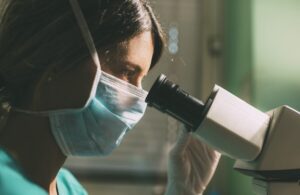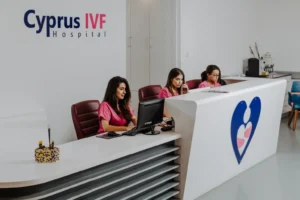Clare: Dr Paraschos, thank you for discussing these new developments with Fertility Road magazine. To begin, what is the change in Greece in terms of maximum IVF female patient age and when was it implemented?
Thanos: The age limit has changed from 50 to 54 years old for women who choose to use assisted reproduction treatments. This change was implemented on 21-7-2022. So, even more women can become mothers.
Clare: Why has this change to female age limit been made?
Thanos: The change in Greece in terms of maximum IVF patient age has to do with the negative demographic developments in Greece and the reduction of births compared to deaths. It is certainly expected that the new measures will result in the increase of births and also increase of the country’s population.
Clare: Did clinics feel patients’ demand for extending the age before?
Thanos: We certainly did. For a long time, women over 50 had been looking for help to have a baby in Greece. These women had to visit other countries in order to undergo assisted reproduction techniques. Today reproductive medicine has developed and so has embryology. The age limit was considered obsolete and reforms were necessary.
Clare: Are there any other important changes for patients implemented at the same time?
Thanos: Certainly, the new law offers the option of cryopreservation of eggs for social reasons and not only medical. As well as the abolition of the 20-year ceiling of the duration of the cryopreservation, the law states that every individual has the right to deposit non-fertilized genetic material for cryopreservation without the consent of the spouse and the material can be used in the event of divorce.
The new law provides the right of a sperm or an egg donor to be anonymous or to declare his or her name or the name of a relative so that the child will be able to know the personal details of the donor when he or she becomes an adult. It goes without saying that the donor is protected from any paternity / maternity claim. The new law also establishes a Cryopreservation Bank that is to be used exclusively by HIV-positive people.
Clare: What kinds of treatments are available in Greece for older patients?
Thanos: Donor egg IVF is often recommended for women who are over age 43 and have not found success with other fertility treatments. The Live Birth Rate after egg donation ranges from 50 to 70%. For women reluctant to undergo Egg Donation, alternative solutions are available. We may use the antagonist protocol, androgens – mainly dehydroepiandrosterone (DHEA), Growth Hormone Cotreatment, Natural/Modified Natural Cycle, mild or High Dose Controlled Ovarian Stimulation, Platelet-Rich Plasma intraovarian injection and glucocorticoids in patients with evidence of autoimmunity.
Clare: What is the age range of international fertility patients in Greece?
Thanos: Based on our numbers age groups can vary but in general international patients who visit Greece and are:
Up to 35 years old – approx. 26%
Up to 40 years old – approx. 25%
Up to 50 years old – approx. 49%
Clare: Is the number of older patients increasing? If so, why is this?
Thanos: The number of older patients is increasing. There is a trend toward delayed childbearing and it is reported worldwide. The maternal mean age at birth of the first child is getting higher in all developed countries due to the social and economic transformations of the recent decades. These have led to higher life standards and deferment of parenthood. Also, the rise in divorces and second marriages has played a role as well as the improvement in women’s educational and professional standards. By age 30, fertility starts to decline and this decline becomes more rapid once a woman is 35. By age 43/44, fertility has declined so much that getting pregnant naturally is unlikely for most women. This leads more and more women to infertility treatments.






